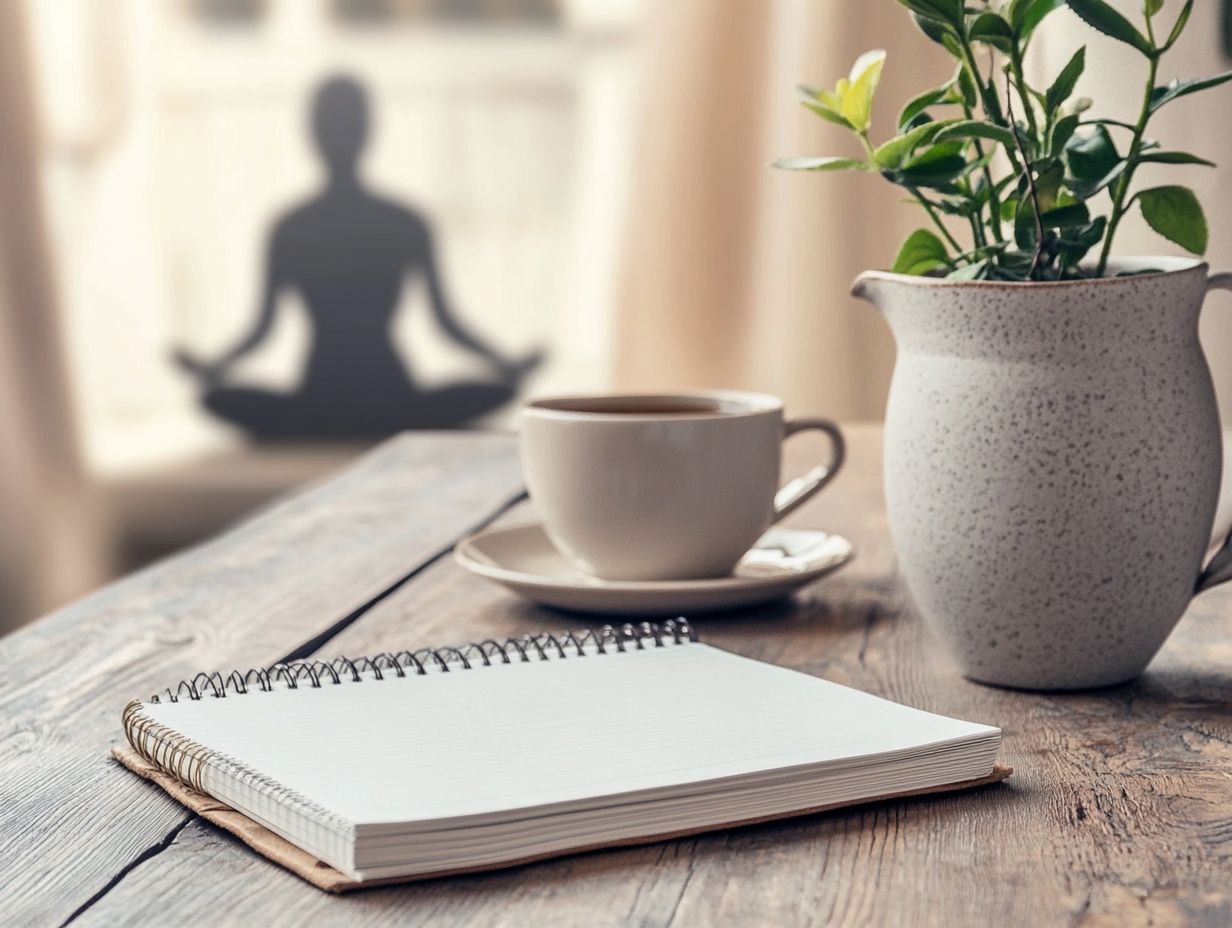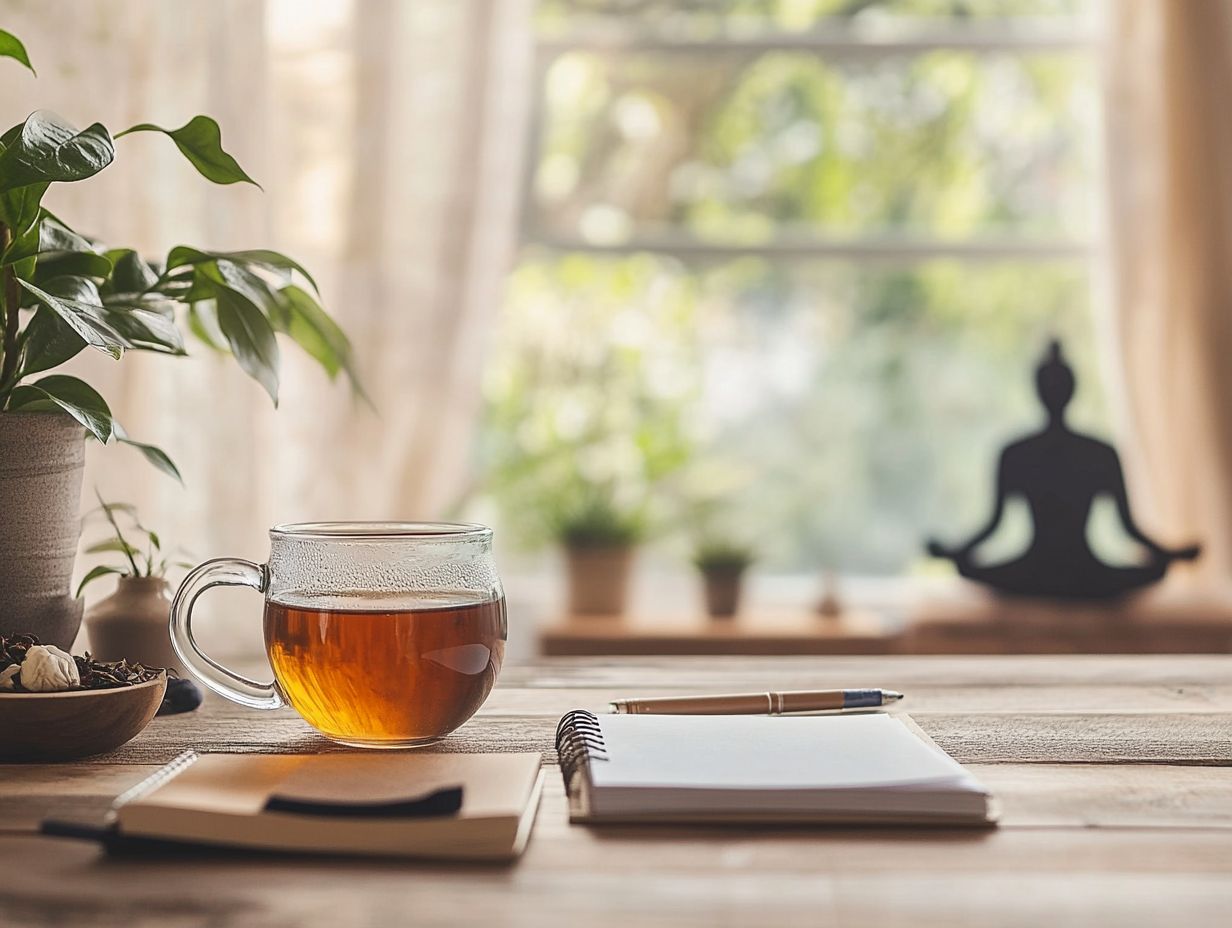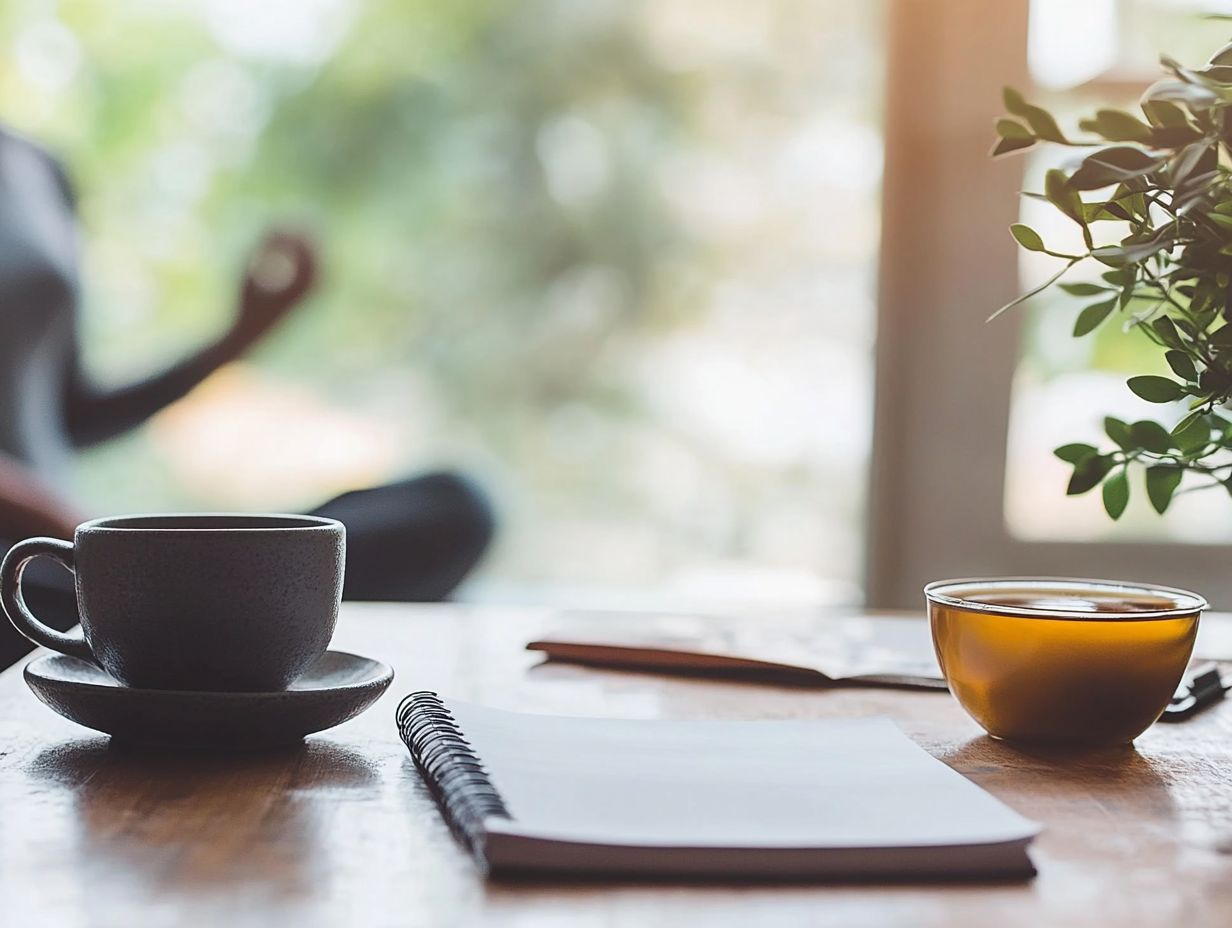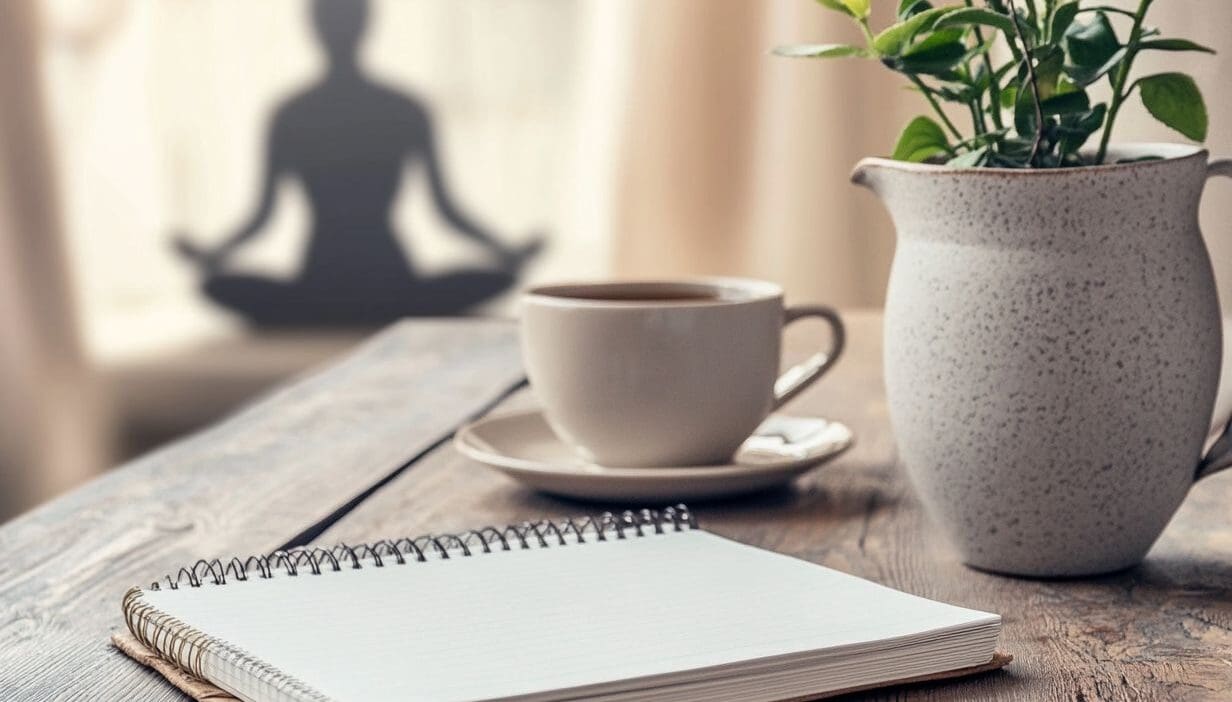In today’s fast-paced environment, mental clutter can accumulate rapidly, resulting in feelings of being overwhelmed and unfocused. This article examines the impact of mental clutter on daily life and identifies common indicators that suggest it is time for a change. It presents effective strategies for clearing the mind, including practical organizational techniques, mindfulness practices, and healthy habits. Additionally, the article will address professional therapy options for individuals seeking more comprehensive support. Furthermore, it offers tips for maintaining a clutter-free mind to achieve lasting peace and productivity. Readers will discover methods to regain control and enhance their overall well-being.
Key Takeaways:
The Effects of Mental Clutter

Mental clutter significantly influences daily life, impacting emotional health and contributing to cognitive overload, which can impede focus and productivity. This cluttered mind state requires effective strategies for declutter mind activities like journaling and mindfulness practice. This phenomenon includes the disorder stemming from disorganized thoughts, excessive stress, and the pressures of daily responsibilities.
As individuals proceed through their routines, the detrimental effects of mental clutter can intensify feelings of anxiety and overwhelm, underscoring the necessity of addressing these cognitive barriers through techniques like task prioritization and time block calendar usage. The BBC explains in their article Cognitive Load Theory: Explaining our fight for focus that understanding how cognitive load works is crucial for managing these barriers effectively.
Achieving mental clarity is essential for enhancing self-care, promoting mindfulness, and ultimately improving overall well-being and clarity in one’s life. Simple habits like the brain dump method and writing down thoughts can aid in this process.
Understanding the Impact on Daily Life
Understanding the impact of mental clutter on daily life is essential for individuals aiming to reduce stress and enhance their overall well-being.
When the mind becomes overwhelmed with disorganized thoughts and unresolved emotions, it can significantly impede one’s ability to effectively prioritize tasks and maintain fulfilling relationships. This state of emotional turmoil not only results in decreased productivity but can also strain connections with family and colleagues, as communication may be hindered by distractions and negative impact clutter. According to Psychology Today, stress can alter the way individuals perceive their partners, which further complicates relationship dynamics.
Recognizing the signs of mental clutter is the initial step toward fostering a more organized and peaceful mindset. This awareness facilitates clearer decision-making and allows individuals to concentrate on what truly matters in both personal and professional contexts.
Identifying Mental Clutter
Identifying mental clutter represents the initial step toward attaining mental clarity and emotional well-being, as it frequently manifests through various signs and symptoms that can considerably impact an individual’s quality of life. According to Mind, understanding the signs and symptoms of stress is an essential aspect of recognizing mental clutter.
Symptoms associated with a cluttered mind may include persistent stress, feelings of anxiety, and difficulty concentrating, which often lead to cognitive overload that undermines productivity and emotional stability.
Recognizing these signs is crucial for individuals seeking to prioritize mental self-care and embark on a journey toward a more organized and tranquil existence.
Common Signs and Symptoms

Common signs and symptoms of mental clutter include persistent anxiety, heightened stress, and feelings of overwhelm that disrupt daily routines. Addressing these with emotional benefits journaling can provide relief.
These emotional disturbances can manifest in various forms, such as difficulty concentrating on tasks, which can render even simple activities challenging to complete. Frequent distractions may occur, leading individuals to shift from one thought to another without the capacity to focus on any single idea. Clarity through talking or mindfulness meditation can help.
This lack of focus can result in additional emotional distress, characterized by increasing frustration and irritability stemming from unmet expectations and the pressures of deadlines.
Recognizing these signs is vital, as it is essential to address the underlying issues of anxiety and stress. These factors often exacerbate the sense of chaos within one’s mind, highlighting the importance of seeking effective strategies for managing and organizing thoughts.
Strategies for Overcoming Mental Clutter
Implementing effective strategies to overcome mental clutter is essential for enhancing mental health and achieving clarity in both personal and professional aspects of life.
These strategies may include adopting organizational techniques, engaging in mindfulness practices, and prioritizing mental self-care to foster a more structured and peaceful environment.
By employing these approaches, individuals can significantly reduce cognitive overload and emotional distress, thereby establishing a foundation for improved focus and emotional well-being.
Organizational Techniques
Effective organizational techniques can significantly mitigate the effects of mental clutter and foster a more productive and serene environment.
By implementing strategies such as creating detailed task lists, individuals are able to prioritize their responsibilities and break down larger projects into manageable steps. Automate life and self-talk reduction are also beneficial. This approach not only enhances focus but also alleviates the overwhelming feeling often associated with a busy schedule.
Maintaining clear surfaces, whether at a workstation or in personal spaces, minimizes distractions and promotes a sense of calm. Additionally, utilizing a time-block calendar allows for the systematic allocation of specific periods for tasks, thereby encouraging greater efficiency and clarity. Limiting social media and engaging in a transition routine are also recommended.
Collectively, these practices contribute to improved mental clarity, enabling individuals to navigate daily challenges without the burden of cognitive overload.
Mindfulness and Meditation

Incorporating mindfulness and meditation into daily routines represents a highly effective strategy for addressing mental clutter and enhancing emotional well-being.
By integrating these practices, individuals frequently experience a significant transformation in their overall state of health. Mindfulness promotes present-moment awareness that aids in alleviating racing thoughts, while meditation cultivates a profound sense of calm and stability.
Breathing techniques are integral to these practices, facilitating natural emotional release and fostering a sense of control over one’s responses to stress. Incorporating mindful exercise and nature walks enhances these benefits. This combination not only reduces anxiety but also enhances resilience, enabling individuals to navigate life’s challenges with increased ease and clarity.
As a result, achieving emotional balance becomes more feasible, creating the foundation for a healthier and more peaceful existence.
Healthy Habits and Self-Care
Adopting healthy habits and prioritizing self-care are essential for effectively overcoming mental clutter and fostering a balanced lifestyle. These practices not only enhance physical well-being but also significantly contribute to mental clarity and emotional stability.
Engaging in regular exercise can lead to an increase in endorphins, commonly referred to as “feel-good” hormones, thereby alleviating symptoms of anxiety and depression. Similarly, incorporating practices of solitude, such as meditation or journaling, enables individuals to connect deeply with themselves, facilitating self-reflection and personal growth.
Mindful eating promotes a more thoughtful relationship with food, encouraging healthier choices and improving overall mood. By acknowledging the importance of self-care through these habits, individuals can establish a strong foundation for a happier and more fulfilling life. The benefits of a digital detox and solitude practice should not be underestimated.
Seeking Professional Help
Seeking professional assistance is a crucial step for individuals experiencing mental clutter, as therapy and counseling services can offer essential support and guidance toward achieving emotional health.
A qualified mental health professional can help identify underlying issues that contribute to cognitive overload and teach effective coping strategies, such as mindfulness practices and task prioritization, enabling individuals to regain control over their thoughts and feelings.
This targeted approach not only addresses the symptoms of mental clutter but also promotes long-term emotional well-being.
Therapy and Counseling Options

A variety of therapy and counseling options are available for individuals experiencing mental clutter, offering tailored support to enhance emotional well-being.
These approaches are designed to meet individual needs, enabling mental health professionals to develop a customized roadmap for recovery. For instance, cognitive-behavioral therapy (CBT) emphasizes the identification and modification of negative thinking patterns, give the power toing individuals to address their challenges more effectively.
In parallel, mindfulness counseling encourages clients to engage with the present moment, fostering a deeper understanding of their emotions and alleviating stress. Other methods, such as dialectical behavior therapy (DBT), integrate mindfulness within the frameworks of interpersonal effectiveness and emotional regulation, demonstrating the range of strategies that are accessible.
Ultimately, mental health professionals play a crucial role in guiding individuals toward achieving a healthier emotional state.
Maintaining a Clutter-Free Mind
Maintaining a clutter-free mind is crucial for achieving long-term success in emotional well-being and mental clarity.
Individuals can implement various practices, such as mindfulness, digital detoxification, and reducing social media exposure, to enhance focus improvement and organization in their thoughts and tasks. Additionally, thoughts journaling is recommended to clear mental clutter.
By adopting these habits, individuals can significantly alleviate cognitive overload and cultivate an environment that promotes both productivity and tranquility. The benefits of journaling cannot be overstated in this process.
The primary objective is to incorporate straightforward yet effective self-care techniques into daily routines to foster a more balanced lifestyle, highlighting self-care importance.
Tips for Long-Term Success
Implementing strategies for long-term success can significantly assist individuals in maintaining a clutter-free mind and enhancing their emotional health over time. This includes task list creation to write down thoughts.
By incorporating regular mindfulness practices, such as meditation or deep breathing exercises, individuals can cultivate a heightened sense of awareness and presence in their daily lives. These are effective stress reduction techniques.
Effective organization techniques, including the utilization of planners or digital tools, can aid in eliminating chaos both mentally and physically, and improve one’s physical environment.
Moreover, creating a supportive environment that promotes calmness—through decluttering spaces and surrounding oneself with positive influences—plays a critical role in fostering mental well-being. Support resources are also essential during challenges like COVID lockdowns, as John Eldredge suggests in his works.
When these strategies are consistently applied, they not only enhance emotional resilience but also contribute to a more fulfilling and balanced life, ultimately limiting social media to prevent mental overload. Regular exercise benefits cannot be overlooked.



